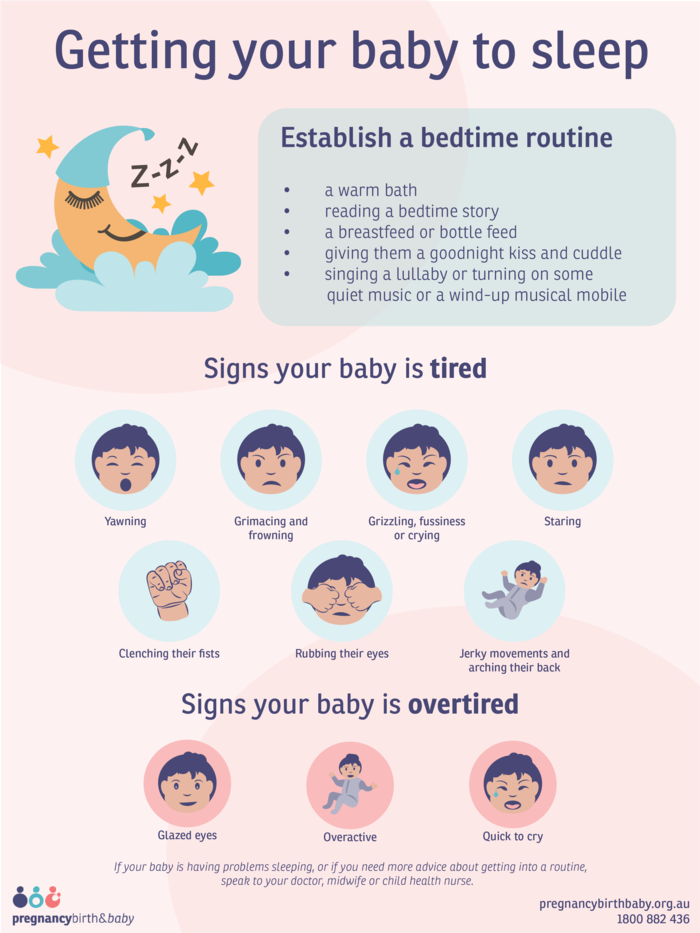When Do Kids Go To Preschool?
Preschool is a crucial stage in a child’s educational journey, offering a foundation for their cognitive, social, and emotional development. Understanding the optimal age for preschool enrollment and the factors influencing parents’ decisions can help ensure a smooth and beneficial transition for children.
This comprehensive guide explores the age ranges, factors, benefits, and types of preschool programs available. It also provides guidance on selecting the right preschool and tips for transitioning children smoothly into this important educational setting.
Age Ranges for Preschool
Preschool, also known as nursery school or kindergarten, is an early childhood education program designed to prepare children for primary school. The age range for preschool varies depending on the country and educational system, but it typically falls within the range of 3 to 5 years old.
In the United Kingdom, preschool is typically offered to children between the ages of 3 and 5, with some programs accepting children as young as 2 years old. In the United States, preschool is generally offered to children between the ages of 3 and 4, with some programs accepting children as young as 2 years old.
There are a number of factors that can affect the age range for preschool, including the availability of programs, the cost of programs, and the parents’ work schedules. Some parents may choose to send their children to preschool at a younger age to give them a head start on their education, while others may choose to wait until their children are older and more mature.
Factors Influencing Preschool Enrollment

Parents’ decisions to enroll their children in preschool are influenced by various factors, including family income, parental work schedules, and cultural norms.
Family income plays a significant role in preschool enrollment rates. Families with higher incomes are more likely to enroll their children in preschool, as they can afford the tuition and associated costs. Parental work schedules also impact enrollment rates. Parents who work full-time are more likely to enroll their children in preschool to ensure their care and education during working hours.
Cultural norms also influence preschool enrollment rates. In some cultures, it is common for children to attend preschool from a young age, while in others, it is less common. Additionally, some cultures place a higher value on academic achievement, which may lead to parents enrolling their children in preschool to give them a head start.
Family Income and Preschool Enrollment
Research indicates a positive correlation between family income and preschool enrollment rates. Families with higher incomes are more likely to enroll their children in preschool, as they can afford the tuition and associated costs. This is because preschool tuition can be expensive, and families with lower incomes may not be able to afford it. Additionally, families with higher incomes may be more aware of the benefits of preschool and may be more likely to prioritize their children’s early education.
Benefits of Preschool Education
Preschool education offers a wealth of cognitive, social, and emotional benefits that can set children up for success in life. It provides a stimulating environment where they can explore, learn, and grow in a variety of ways.
Cognitive Benefits
Preschool helps children develop their cognitive skills, including:
– Language and literacy: Preschoolers learn new words, develop their vocabulary, and begin to understand the basics of reading and writing.
– Math and science: Preschoolers learn about numbers, shapes, patterns, and the natural world.
– Problem-solving and critical thinking: Preschoolers learn to solve problems, think creatively, and make decisions.
Social Benefits
Preschool also helps children develop their social skills, including:
– Cooperation and teamwork: Preschoolers learn to work together with others, share, and take turns.
– Communication: Preschoolers learn to communicate effectively with both adults and children.
– Empathy and compassion: Preschoolers learn to understand the feelings of others and to show empathy and compassion.
Emotional Benefits
Finally, preschool helps children develop their emotional skills, including:
– Self-regulation: Preschoolers learn to manage their emotions, control their impulses, and cope with stress.
– Self-esteem: Preschoolers learn to feel good about themselves and their abilities.
– Confidence: Preschoolers learn to trust their own abilities and to take risks.
Overall, preschool education provides a solid foundation for children’s future success by helping them develop the cognitive, social, and emotional skills they need to thrive.
Types of Preschool Programs
Preschool programs vary in their duration, curriculum focus, and teaching methods. Understanding the different types can help you choose the best program for your child’s individual needs.
The following table provides an overview of the most common types of preschool programs:
Types of Preschool Programs
| Type | Duration | Curriculum Focus | Teaching Methods |
|---|---|---|---|
| Traditional Preschool | Half-day or full-day | Academic skills, social-emotional development, and physical activities | Teacher-led instruction, play-based learning, and hands-on activities |
| Montessori Preschool | Half-day or full-day | Self-directed learning, practical life skills, and sensorial development | Child-centered, hands-on activities, and individualized instruction |
| Waldorf Preschool | Half-day or full-day | Imaginative play, creativity, and nature-based activities | Artistic expression, storytelling, and experiential learning |
| Cooperative Preschool | Half-day or full-day | Social development, cooperation, and parent involvement | Parent-led instruction, play-based learning, and shared responsibilities |
| Play-Based Preschool | Half-day or full-day | Play and exploration as the primary learning methods | Free play, imaginative play, and child-directed activities |
When selecting a preschool program, consider your child’s age, developmental needs, learning style, and family schedule. Research different programs and visit them in person to get a feel for the environment and teaching methods.
Choosing the Right Preschool
Selecting the perfect preschool for your little one can be a daunting task, but with careful consideration, you’ll find the ideal fit. Start by narrowing down your options based on location and program philosophy. Each preschool has its unique approach, whether it’s play-based, Montessori, or Reggio Emilia.
Teacher Qualifications
Prioritize finding a preschool with experienced and qualified teachers. Look for educators who hold relevant certifications, such as Early Childhood Education (ECE) or Montessori training. They should demonstrate a genuine passion for working with young children and possess excellent communication and interpersonal skills.
Curriculum
Inquire about the curriculum to ensure it aligns with your values and child’s needs. Does it focus on play-based learning, academics, or a blend of both? Consider the balance between structured activities and free play, as well as the opportunities for creativity and social interaction.
Facilities
The physical environment of the preschool should be safe, clean, and stimulating. Look for age-appropriate toys, books, and equipment that encourage exploration and learning. Outdoor space is crucial for physical activity and imaginative play.
Parent Involvement
Assess the level of parent involvement expected by the preschool. Consider your availability and interest in volunteering, attending events, or participating in decision-making. Open communication between parents and teachers is essential for a successful preschool experience.
Transitioning to Preschool
Preparing your little one for preschool can be a daunting task, but with the right strategies, you can make it a smooth and positive experience.
Here are some tips to help your child transition seamlessly:
Preparing Your Child
– Talk to your child about preschool: Explain what preschool is, who they will meet, and what they will do. Use positive language and emphasize the fun and exciting aspects.
– Visit the preschool: Take your child to visit the preschool before they start. This will help them familiarize themselves with the environment and reduce any anxiety.
– Practice preschool routines: Introduce preschool-like routines at home, such as getting dressed, packing a lunch, and following instructions.
– Encourage social interaction: Engage your child in playdates and other social activities to help them develop social skills and confidence.
Common Challenges and Solutions
– Separation anxiety: It’s normal for children to experience some separation anxiety when starting preschool. To address this, establish a clear goodbye routine and assure your child that you will return to pick them up.
– Difficulty adjusting to the routine: Preschool has a structured routine that can be different from home. Help your child adjust by establishing a consistent routine at home that includes regular mealtimes, naptimes, and quiet time.
– Behavioral issues: Some children may exhibit behavioral issues such as tantrums or aggression when starting preschool. Address these issues by setting clear rules and expectations, providing positive reinforcement for good behavior, and working with the preschool staff to develop strategies.
Common Queries
What is the average age range for preschool?
Typically, preschool is designed for children between the ages of 3 and 5 years old.
Are there any variations in age ranges for preschool?
Yes, some preschool programs may accept children as young as 2 years old, while others may extend the age range to include children up to 6 years old.
What factors influence parents’ decisions to enroll their children in preschool?
Factors such as family income, parental work schedules, cultural norms, and the child’s individual needs and readiness play a role in parents’ decisions.
What are the cognitive benefits of preschool education?
Preschool can enhance children’s language and literacy skills, problem-solving abilities, and numeracy skills.
What are the social and emotional benefits of preschool education?
Preschool fosters children’s social skills, such as cooperation, communication, and empathy, and helps them develop a positive self-concept.
How can parents choose the right preschool for their child?
Parents should consider factors such as the preschool’s location, program philosophy, teacher qualifications, and curriculum when making their decision.
What tips can help children transition smoothly to preschool?
Parents can prepare their children by visiting the preschool beforehand, establishing a consistent routine, and encouraging them to interact with other children.





